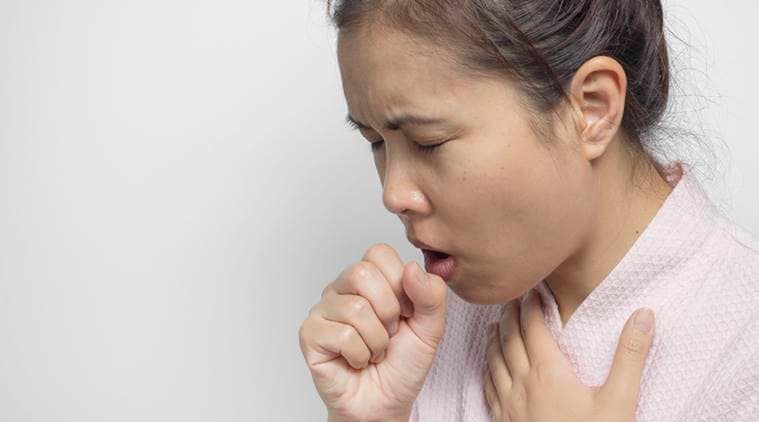How can patients with asthma stay safe amid COVID-19?
People with moderate to severe asthma may be at higher risk of getting very sick from viral infection. These infections can affect your respiratory tract (nose, throat, lungs), cause an asthma attack, and possibly lead to pneumonia and acute respiratory disease.

Chronic respiratory conditions account for a massive health burden in India, at around 93 million, out of which nearly 37 million are asthmatics. India contributes to 11.1 per cent of the global asthma burden and accounts for over 42 per cent of related deaths making it the asthma capital of the world.
Respiratory viral infections are the primary cause of asthma exacerbations. For patients at risk of asthma, or with existing asthma, viral respiratory tract infections can have a profound effect on the expression of disease or loss of control. It is important to know that currently there is no evidence of increased infection rates in those with asthma. However, there is an estimation, which states that patients with moderate-severe asthma could be at greater risk for more severe disease, but there is no published data to support this.
In view of the effect of respiratory viruses on asthma, it is of paramount importance that asthmatics take utmost care in the current times. In order to completely stop/prevent virus-induced exacerbations from occurring, good asthma management would be critical to implement.
Below are some of the important points that can help, suggested Dr S K Jindal, director, Jindal Clinics and former Professor and Head, Pulmonary Medicine, at Postgraduate Institute of Medical Education & Research, Chandigarh.
Is it advisable for asthmatics to continue using their corticosteroid inhaler?
Patients with asthma should never stop taking their corticosteroid inhaler unless asked to do so by a medical professional. Stopping the steroid inhaler could put the patient at higher risk of complications with infections as it would impair asthma control.
People with asthma are placed on steroid inhalers to keep their asthma under control. In the current pandemic, the best thing a person with asthma can do is to keep their asthma under control.
Stopping steroid inhaler will put the person at risk for developing an asthma exacerbation.
In the current pandemic, treatment of an exacerbation will likely require going to the emergency department or urgent care, where the individual has a much higher risk of being exposed to someone with an infection. So, in a way, by continuing to keep asthma under control, the person with asthma is actually reducing their chance of exposure to viral infections.
What should be done to ensure that the inhaler does not get infected?
Never share inhalers with others. Wash the inhalation devices regularly to keep them hygienic and clean.
What should an asthmatic do if he experiences worsening of his symptoms?
Asthmatics should follow the Asthma Action Plan as recommended by their doctor. If they don’t have one, ask the doctor.
It is recommended to use an MDI with a spacer to relieve acute symptoms. Use of nebulisers should be avoided as they carry a high risk of transmitting viral infections because they generate aerosols that can spread infectious droplets for several metres.
However, there could be situations when a nebuliser is absolutely required. In such cases, it is of utmost importance to follow good nebulisation and infection control practices. Your doctor can advise you on these practices to be followed.
Should asthmatics go ahead with scheduled appointments or should they avoid going to medical centres or hospitals?
If the asthma is under control avoid visiting to a clinic of a hospital. You may want to contact your doctor telephonically and update him about your progress. If it is absolutely necessary for you to visit the doctor, please take a prior appointment and visit him. Asthmatics should avoid making any unscheduled visits to the clinic.
What should people with asthma do if they have symptoms of fever and cough?
Though asthma is associated with cough and breathlessness, fever is unusual. In such a situation, asthmatics must immediately consult the doctor and follow all instructions given.
Guidelines for people who are at very high risk in the current situation because they have a severe respiratory condition, including severe asthma and COPD?
People with moderate to severe asthma may be at higher risk of getting very sick from viral infection. These infections can affect your respiratory tract (nose, throat, lungs), cause an asthma attack, and possibly lead to pneumonia and acute respiratory disease.
*Keep your asthma under control by following your asthma action plan.
*Continue your current medications, including any inhalers with steroids in them (“steroids” is another word for corticosteroids)
*Don’t stop any medications or change your asthma treatment plan without talking to your healthcare provider.
*Discuss any concerns about your treatment with your healthcare provider.
*Talk to your healthcare provider, insurer, and pharmacist about creating an emergency supply of prescription medications, such as asthma inhalers. Make sure that you have 30 days of non-prescription medications and supplies on hand too in case you need to stay home for a long time.
*Avoid your asthma triggers.
*As more cases of viral infection are discovered and our communities take action to combat the spread of disease, it is natural for some people to feel concerned or stressed. Strong emotions can trigger an asthma attack. Take steps to help yourself cope with stress and anxiety.
Besides these:
*Take everyday precautions to keep space between yourself and others.
*When you go out in public, keep away from others who are sick.
*Clean your hands often by washing with soap and water or using an alcohol-based hand sanitiser.
*Avoid crowds and people who are sick.

Why and how inhalation therapy is a better way to control asthma even during the current situation?
It is important to continue taking your controller medications and do not stop them. Stopping a controller medication will put the person at risk for developing an asthma exacerbation—especially as we enter spring allergy season. In the current pandemic, treatment of an exacerbation will likely require going to the emergency department or urgent care, where the individual has a much higher risk of being exposed to infections. So, in a way, by continuing to keep asthma under control, the person with asthma is actually reducing their chance of exposure to infectious viral.
How can one tell the difference between asthma, flu, cold or seasonal allergies and other viral infections?
In viral infection, look out for the following symptoms:
- Trouble breathing
- Persistent pain or pressure in the chest
- New confusion or inability to arouse
- Bluish lips or face
? The Indian Express is now on Telegram. Click here to join our channel (@indianexpress) and stay updated with the latest headlines
For all the latest Lifestyle News, download Indian Express App.
Source: Read Full Article






